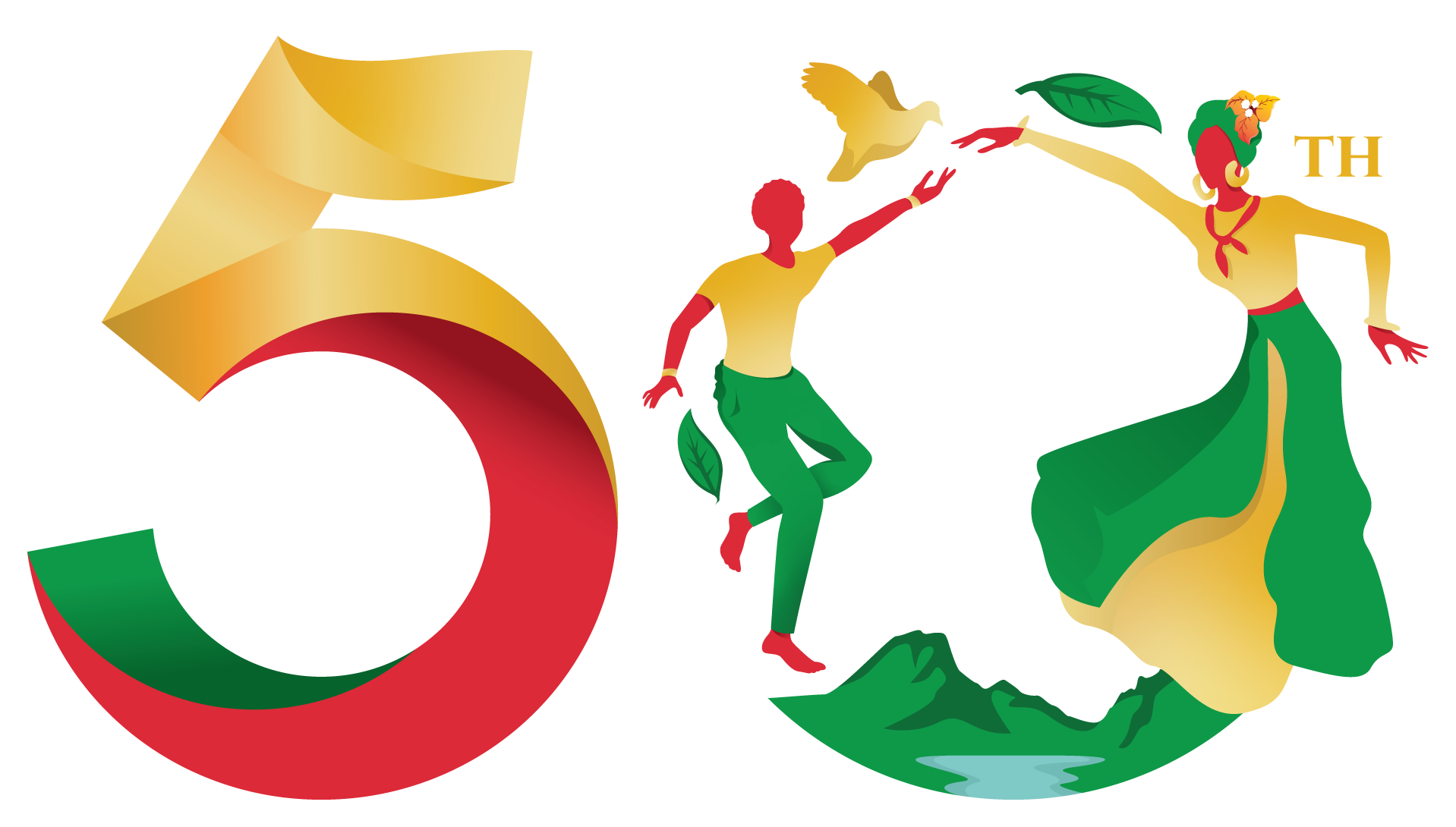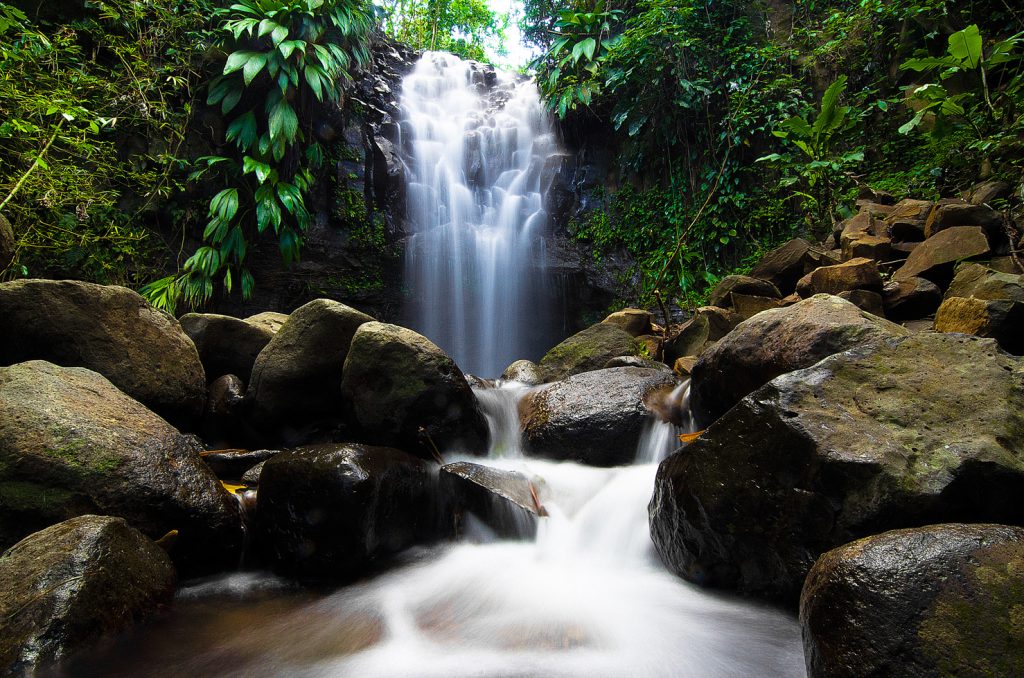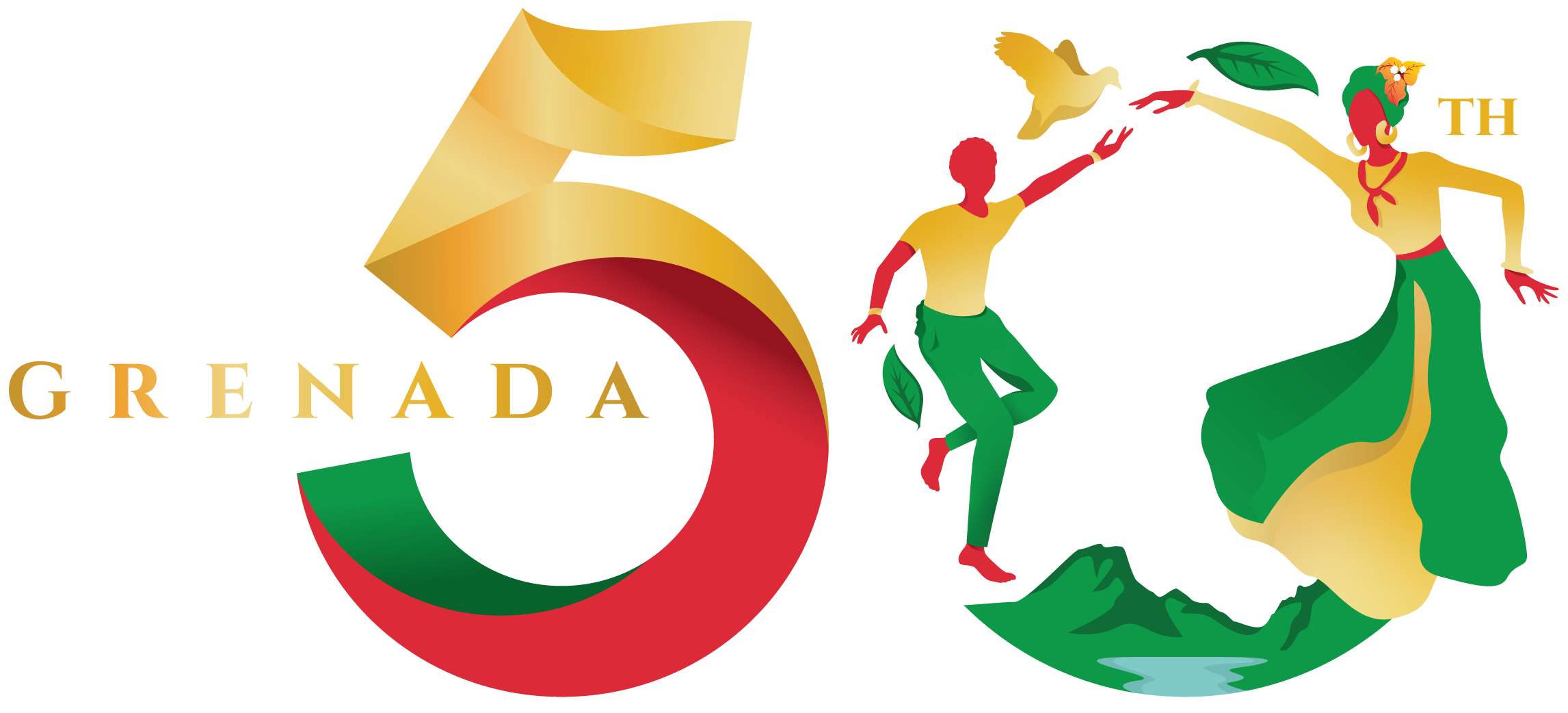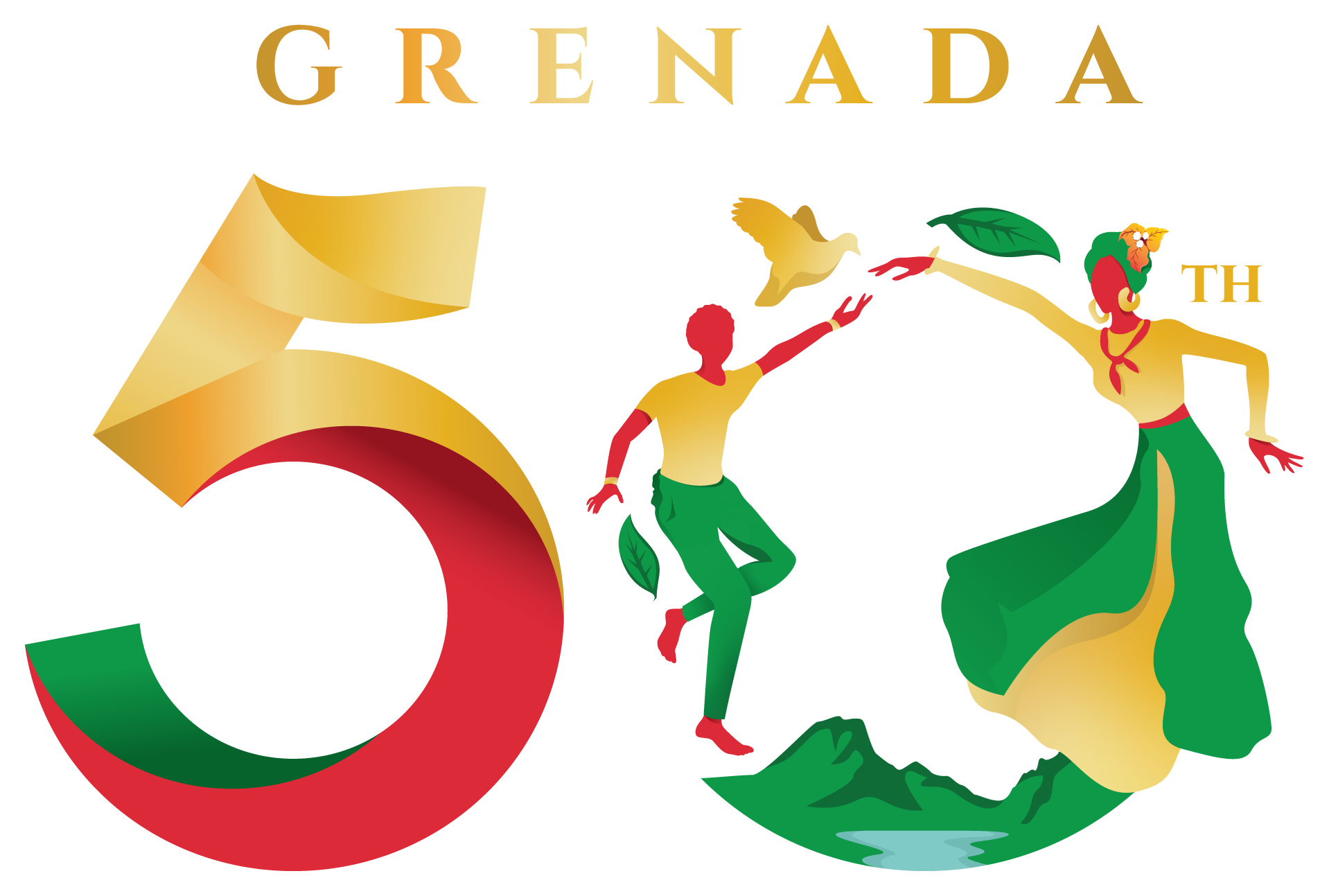
Historical timeline
History
The Long Struggle to 50 Years of Independence
The 50th Independence Commission has curated a series of official events to celebrate Grenada’s 50th Independence Anniversary. The event calendar is designed to resonate with the diverse values and expressions of Grenadian pride, catering to all ages, socioeconomic statuses, and residents both at home and abroad.
1
A Call to Independence:
Emerging Nations of the Caribbean

1962
The collapse of the Federation of the West Indies on Jamaica’s successful referendum to leave in 1962 and Dr. Eric Williams of Trinidad’s declaration, “One from ten leaves naught!”, began the road to independence for the former British colonies in the West Indies.

1962 - 1966
In quick succession Jamaica (19 July 1962), Trinidad (31 August 1962), Guyana (26 May 1966) and Barbados (30 November 1966) chose independence, but the smaller colonies in the Eastern Caribbean had a more difficult struggle overcoming the issue of economic viability due to their small size.

1969
It was Grenada, spearheaded by Eric Gairy, that began the final push towards independence for the small island states after the failure by the end of the 1960s of the proposed “Little Eight” union with Barbados and “Unitary State” with Trinidad.

1970's
However, Grenada’s independence was hard fought, leading the way for the creation of the first mini states in the Caribbean.
2
A Difficult
But Inspiring Birth, 1974-1983

1974
Unlike the first former British colonies to achieve Independence in the West Indies, Grenada’s road to Independence was fraught with contestation.This resulted in civil unrest, island-wide protests against Independence and Premier Eric Gairy, the shutdown of the island’s economy by striking workers, a state of emergency, and a total blackout as Grenada hoisted its new flag on 7 February 1974, becoming the smallest Independent state in the Western Hemisphere.

1962 - 1966
Premier Eric Gairy had championed Independence for Grenada and convinced the British Parliament to confer it on Grenada despite the objections of a significant number of Grenadians. After six years of Associated Statehood with the UK and centuries as a colony of France and Great Britain, Grenada became a sovereign nation, proclaiming it to the world by becoming members of international bodies like the United Nations and the Organization of American States.

1969
The internal conflicts created by the drive to Independence upended the smooth functioning of the state when the New Jewel Movement, a member of the official Opposition in Parliament, staged a “bloodless coup” and removed the elected government of Prime Minister Eric Gairy on March 13, 1979. For the next four and a half years, Grenada embarked on a new path of economic and social development under the People’s Revolutionary Government led by Maurice Bishop. The period witnessed social advancement for Grenadians in addition to major infrastructural changes that included the construction of an international airport.The government’s leftist ideology however made it an adversary of the United States.

1970's
Following internal turmoil ( within the rank and file of the People’s Revolutionary Government) that resulted in the deaths of PM Bishop and other ministers on October 19, 1983, the US invaded the island on 25 October 1983 following the request by members of the Organization of Eastern Caribbean States. It was this series of events that resulted in the collapse of the Grenada Revolution.
3
Growing Pains 1984-1993

1962
Following the collapse of the Grenada Revolution and the US Invasion, Grenada went through a period of soul searching. Many Grenadians remember “the Revo” for the positive benefits it brought, but its collapse was very traumatic and continues to affect a large segment of the population who experienced it.

1984
On October 18,1984 the Maurice Bishop International Airport (then the Point Salines International Airport) opened, linking Grenada to direct international destinations for the very first time. It was the largest construction project to date and remains the most significant legacy of the People’s Revolutionary Government.

1984
In December 1984 , Herbert Blaize became the Prime Minister following the victory of the New National Party in the first general elections since 1976

1985
In March 1985, US Vice President Bush visited Grenada and in February 1986, US President Reagan also paid the island a visit. It was the first by a US president and vice president.

1986
In October 1986, Queen Elizabeth visited Grenada, the second time in her reign as head of state of Grenada.

1989
On July 4th, 1989 CARICOM held a summit at which the “Grand Anse Document” was signed to speed regional integration and strengthen ties with Latin America

1990
Nicholas Brathwaite, as head of the National Democratic Congress, became Prime Minister.

1990
Margaret Neckles became the first woman to be appointed the President of the Senate.

1991
In August 1991, just days prior to the scheduled executions of 14 of the Grenada 17 found guilty in 1986 in the deaths of PM Bishop and others, PM Brathwaite commuted the sentences to life in prison.

1991
In 1991 the Grenada Dove was named the national bird, replacing the ramier pigeon that had been on the coat of arms since Independence. This change was made in an attempt to bring awareness to the Grenada dove and save this island’s endemic bird from possible extinction.
4
The Calm
Before the Storm 1994-2003

1995
In February 1995, George Brizan of the National Democratic Congress became Prime Minister when PM Brathwaite stepped down.

1995
In June 1995, Dr. Keith Mitchell became Prime Minister when the New National Party won the general election

1996
The pink mealybug (Maconellicoccus hirsurus) , a sap-sucking insect, was first observed in St George’s on hibiscus plants in 1995 as a white, wax-like substance, possibly arriving in Grenada in 1993 or earlier. It devastated many plants before it was finally brought under control by 2004 when a parasitic wasp was brought in as a biological control.

1996
In September 1996, the Financial Complex, destroyed by fire in 1990, was opened following reconstruction at a cost of EC$11m.

1997
Prime Minister Dr. Keith Mitchell visited Cuba in April 1997, the first prime minister to do so since 1983, re strengthening ties between the two islands.

1996
On 23 August 1997, after having served for half a century in Grenada politics ,former Prime Minister Eric Gairy died leaving a lasting legacy in the tri-island state.

1998
In August 1998, President Fidel Castrovisited Grenada and unveiled a plaque at the airport acknowledging the tremendous Cuban contribution to the construction of the International Airport

1999
In January 1999, Dr. Keith Mitchell was re-elected as Prime Minister after the New National Party won the general elections

2003
In November 2003 , The New National Party led by Dr .Keith Mitchell, once again won the general elections and he returned as Prime Minister .
5
Recovering From the Storm
2004-2013

2004
On 7 September 2004 a category three Hurricane Ivan devastated Grenada and left 34 people dead in its wake. Its damage to infrastructure, etc. totaled almost US$1 Billion. It was the most devastating storm to hit Grenada since Hurricane Janet in September 1955.

2005
In 2005, the Cruise Ship Terminal was completed at a cost of US$42 Million and berths two cruise ships at a time, expanding Grenada’s capacity to accommodate cruise passengers.

2005
On 13 July 2005, a category 1 Hurricane Emily struck Grenada, compounding the extensive devastation caused by Hurricane Ivan only 10 months earlier.

2006
In 2006 ,Jason deCaires Taylor established the first Underwater Sculpture Park in the world at Molinere Bay, St George as a way to promote marine conservation and coral reef rebuilding following extensive damage from Hurricane Ivan. Today, it is a major snorkeling and diving attraction.

1998 & 2004
Construction of the Cricket Stadium on the site of the stadium built in 1998 and destroyed by Hurricane Ivan in 2004.

2008
In July 2008 ,Tillman Thomas became Prime Minister when the National Democratic Congress won the general elections.

2012
In 2012 ,Kirani James won the Olympic gold medal in the 400m, the first for Grenada. He went on to win a silver medal in the 2016 Olympics and bronze in 2021.

2013
In 2013, Dr. Keith Mitchell became Prime Minister when the New National Party won the general elections.

2013
In May 2013, Cecile La Grenade became the first female governor general of Grenada.
6
Preparing for the Next 50 Years
2014-2024

2016
In 2016, construction of the Athletic Stadium to replace the one destroyed by Hurricane Ivan in 2004.

2016
October 2016 saw a celebration of the Temne Reunion in Carriacou with representatives from Sierra Leone, reconnecting West Africa to the Caribbean

2017
In April 2017, the Athletic Stadium was named after Kirani James, Grenada’s Olympic champion

2018
In March 2018, Dr. Keith Mitchell became Prime Minister when the New National Party won the general elections.

1997
Hollice Mapp aka Mr Killa won the International Soca Monarch in Trinidad, promoting the sub-genre Djab-Djab Soca from Grenada on the international music scene.

1996
Construction of the new Houses of Parliament at Mount Wheldale.

2020
In March 2020 the Covid-19 Pandemic resulted in the total shutdown of travel, forcing Grenada to close its borders like most other countries.

2023
In June 2023, Dickon Mitchell became Prime Minister when the National Democratic Congress won the general election.


